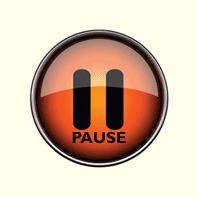| |
Writing tips
 There
are billions of words out there advising writers on how to get
the best from their talents. It's hard to add anything else
that's useful and isn't patronising. But working on the assumption
that you're new and keen to suck a few eggs, here's my input.
I'm dealing primarily with fiction, but there’s also a brief
note on feature writing and copywriting. There
are billions of words out there advising writers on how to get
the best from their talents. It's hard to add anything else
that's useful and isn't patronising. But working on the assumption
that you're new and keen to suck a few eggs, here's my input.
I'm dealing primarily with fiction, but there’s also a brief
note on feature writing and copywriting.
Read and study carefully.
The advice given here will, to a greater or lesser extent,
help preclude
that demoralising soul-sinking rejection letter moment.
Write directly
That sounds
simple enough, but like a lot of simple things, it can be very
hard to do. People tend to unnecessarily embellish their talk,
and the embellishment dilutes the impact.
You see this commonly on TV man-in-the-street interviews
where someone has witnessed, say, a fire and ends up repeating
themselves. There was smoke and flames and ... well, it was
awful. Some people ran out screaming and ... and it was terrible.
Awful. The smoke. The fire. Awful.
This happens largely because the interviewer has shoved
a microphone in the witness's face and is demanding another
sound bite, which are hard to deliver on demand.
Instead, use a simple statement, unrepeated. It's stronger.
So what happened?
The building caught fire. Some people came running
out. It was hell.
End of story.
Now try this; The man in the black suit with the briefcase
walked along the street until he found a gap in the traffic
and looked right and left before crossing between the oncoming
cars.
There's too much happening in this sentence. Chop it up
into manageable chunks. Think of it as a meal. Just how much
are you going to fork in at once?
The man crossed the street.
Full stop.
If it's important to mention the man's black suit and briefcase,
give those facts a sentence of their own.
The man crossed the street. He was wearing a black
suit and carrying a briefcase.
This doesn't mean you can't build longer, more complex and
more colourful sentences. It just means that you should always
give your reader a chance to chew.
Which takes us to the next point ...

Want to read more?
There are over 25,000 words of
writing tips and advice on my website. I've spent months
writing these pages, and years refining them. I'm happy to
share my professional knowledge with you. But like everyone
else, I need to capitalise on my skills and efforts.
For just £1.99 I'll send you my entire
MR EDIT'S WRITING ADVICE FOR AUTHORS as a .pdf file. Just follow the link below, or above, and you'll be taken to PayPal. You don't need an account; just a credit card or a
debit card.
You'll generally receive my writing
guide within an hour. But occasionally technical glitches
from PayPal delay this for up to 24 hours.
Either way, you'll receive 25,000
very helpful words that will make you a better writer, will
give you fresh insight into your work, and
will improve the chances of a literary agent or publisher
accepting your manuscript.

Mr Edit
YouTube videos
Meanwhile, here are
some of my You Tube videos that might be of interest to you.
Hope you enjoy them.

Mr Edit. Let's talk about dialogue
https://youtu.be/KG0CLm1S9Rs

Mr Edit. Pitching fiction to a literary
agent.
http://www.youtube.com/watch?v=yy698w2Ooc8

Mr Edit. 5 Minute Fiction Fix.
https://youtu.be/y6OPUfcDH90

Mr Edit. Let's talk about tautology.
http://www.youtube.com/watch?v=_zhoBLImV6U
Links for writers
Preditors
& Editors. Here's where you can check out the credentials
of literary agents and publishers. A must for any writer.
http://pred-ed.com
Creative Helps.
Helpful resource for the creative community. Articles, links
and tips.
http://www.creativehelps.com/products.htm
Nick Daws'
Writing Blog. Lots of useful posts on all aspects of writing,
both for print and online, plus a guest post for anyone who
wants to make a contribution. Check it out.
http://www.mywritingblog.com
|
|
Creative writing
●
Writing tips
●
Plotting a novel
●
Finding a literary agent
●
Choosing a literary agent
●
Agent query letters
●
Inspiration for writers
●
Rejection letters
●
Manuscript critique
●
5 minute fiction fix
●
Proof reading
●
Writer's block
●
How to get published
●
Active & passive voice
|
Special features

Darley Anderson,
top UK literary
agent, on books,
publishing and success

Zoë Sharp,
creator
of the
action-packed
Charlie Fox series of books

Jeff Kleinman,
New York literary agent,
talks shop

Crème de la Crime:
An interview
with
Lynne Patrick,
publisher and
managing editor of a smaller—but
essential—British
publishing
house.
Editing
tips
Write in dialogue
Try writing
the entire chapter in dialogue only handling it as if it was
a script, and then flesh it out with description. It
can help focus on the essentials.
Character creation
Base your characters
on other established characters from other books, or base them
on well-known actors. It can help add personality - but don't
overdo it.
Inevitably
(or at least ideally) your characters will develop their own
traits as the novel progresses. You can even use their real
names for the first draft.
Where the
hell do you think you're going, said Al (Pacino).
What's it
to you? said Harvey (Keitel).
Later, Al can
become Sid, and Harvey can become whoever. But borrowing faces
and personality types can give you a start with character development.
It doesn't
work for everyone. But then, nothing works for everyone.
Story development
Try sketching
the whole story in 3 sentences.
A soldier
goes to war.
The soldier's
best friend is captured by the enemy. The soldier and best friend
return home.
Then you can
fill in the blanks. How was the friend captured? And why? And
how was he rescued? This can help with plotting. You know the
beginning, the middle and the end. Develop from there. Build
forward, and build backward, and flesh out the middle.
Dictate your story
Stand at a
window or lie in the bath and record your story into a Dictaphone.
This doesn't work for everyone either, especially if you hate
the sound of your own voice, but it might unleash a little unexpected
creativity.
Try it.
Clear writing
Be definite
with your subject. Avoid saying, It was a large house.
Say instead, The house was large. Avoid saying, It
was a hot afternoon. Better to say, The afternoon was
hot. I make this mistake constantly. You have to watch your
own bad habits
"It" is often
too vague. "It" lacks depth. Conversely, sometimes "it" is exactly
what you want depending on the context. Either way, do a global
search with your word processor. It might surprise you.
The story pay off
Give your reader
the
pay-off he or she wants.
If you're writing crime, leave all the clues lying around where
your reader can see them, but don't make them too obvious.
If you're writing a thriller, draw some blood early on (and
get the body count up). If you're writing romance, put some
sex in there somewhere. In fact, sex can go everywhere.
Yes, it means
writing to a formula. So be subtle. Be different. Be imaginative.
But Darling,
I've never made love on a flagpole.
Me neither.
Just don't look down.
Character development
Don't explain
in chapter one everything about your characters. Pepper
the novel with details that slowly reveal their personalities.
Think about the people you know in your private life and ask
how much you knew about them when you first met. Did they present
you with a CV or a biography and tell you not to proceed beyond
this point without reading every word? Or did your knowledge
of them develop gradually.
Characters need goals
Give every
character a clear goal. John wants money. Julia wants fame.
Fred wants out of his relationship. Helen wants to get into
it. If a character is simply toting a machine gun and being
gratuitously nasty, he's underdeveloped. That might be all that
character deserves, given the scope of your book. But if you
can humanise him or her in some way, so much the better.
The two
soldiers, both wearing SS insignias, levelled their machine
guns. For the Fatherland there was nothing they would not do.
It's not much,
perhaps. But it suggests that these two soldiers have their
own clear goals.
Likeable villains
Make your villains
likeable in some respect. Yes, he murdered 60 people before
breakfast, but he's kind to pensioners. No one is all bad. And
no one is all good. By the same token, your hero just saved
60 people before breakfast, but he's unkind to his grandmother
and is short tempered. Wherever possible, show the extremes
of your character's personality.
No one loves Mr Perfect. And no one loves Mr All Bad either.
Write every day
Write every
day and keep moving on your story. Even if you put in a single
word, write something. The trick is to keep the book
on the boil, even if it's on a low flame.
Surprise your reader
Avoid the obvious.
Think of your story as a roller-coaster ride that moves rapidly
up and down, left and right. And while you're at it, take the
train right off the track occasionally.
You wouldn't
hit a woman would you?
No,
he said, reaching for the chainsaw.
Silence and pauses
Use silence
and timed pauses in dialogue.
Well are
you going to marry me? he said.
She met
his gaze and slowly looked away. There was blossom on the trees.
She could hear children playing.
Well are
you?
No, she
said.
Cliché list;
some words and phrases you ought to be careful about using.
24/7.
Ballpark figure.
Absolutely.
It's not rocket
science.
Literally.
To be honest.
Thinking outside
the box.
Moving the
goalposts.
In actual fact.
The mind boggles.
Blue sky thinking.
Basically.
Between a rock
and a hard place.
Back in the
day.
Paradigm shift.
Cutting edge.
Make no mistake.
Bring it on.
Palpable excitement.
No doubt in
my mind.
Don't go there.
There are thousands
more. Just watch for them, and try and find a creative alternative,
or keep it simple.
For advice
on how to submit your book/novel to a literary agent or publisher
read the quick
submission
tips on my
Choosing a literary agent
page.
Back
to the top
|